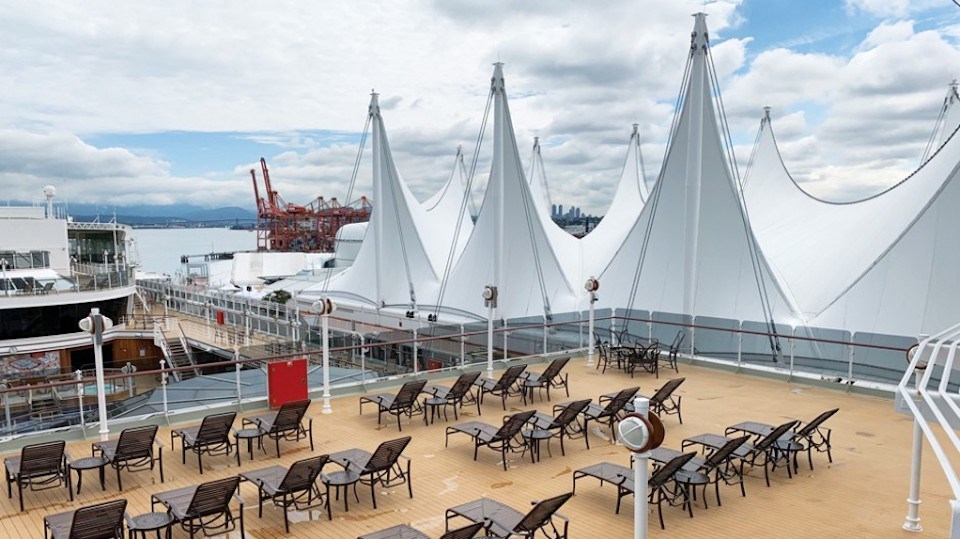Tourism and hospitality were among the hardest hit industries during the COVID-19 pandemic.
Travel for business and leisure almost stopped completely when COVID-19 started spreading, and global health officials declared a pandemic in March 2020.
Businesses are starting to see a rebound thanks to governments lifting pandemic-related restrictions and people starting to feel more comfortable travelling.
This is raising prices.
Pent-up demand is coming from consumers who love to travel but have been unable to do so during the pandemic. Some are willing to pay more for their trips to compensate for more than two years of not being able to travel abroad and that is enabling businesses to charge more.
Cruise
COVID-19 struck the cruise sector early in 2020.
Outbreaks on ships prompted quarantining of passengers in their cabins as the disease rapidly spread. Some ships docked at shore, where customs officials barred passengers from coming ashore.
The federal government closed Canadian ports to cruise ships during the 2020 and 2021 cruise seasons.
Vancouver’s 2022 cruise season launched April 10, when Holland America’s MS Koningsdam arrived at Canada Place.
Many cruise lines started the season with ships under capacity, and at discounted prices.
Industry insiders have told BIV that they expect higher prices and ships to be at full capacity by summer.
The Vancouver Fraser Port Authority expects more than 300 cruise ship calls this year – up from 288 in 2019.
Air travel
Passenger traffic at Vancouver International Airport (YVR) plunged 73.1 per cent, to less than 7.1 million people in 2021, from almost 26.4 million in 2019.
International travel fell even more: 86.4 per cent during those time periods.
Airlines have reinstated routes out of YVR in recent months and increased flight frequency while raising prices.
Air Canada (TSX:AC) on April 15 flew more than 100,000 people for the first time since March 2020.
New ultra-low-cost airline Lynx Air showed confidence by launching on April 7, with non-stop flights out of Vancouver to Kelowna, Calgary, Winnipeg, and Toronto.
It charges passengers for checked and carry-on luggage as well as other services that traditional carriers include in fares.
YVR announced April 15 that it expected to see the highest passenger volumes in more than two years during the Easter long weekend.
Land travel
COVID-19 prompted what had previously been unthinkable: the U.S.-Canada land border closing in March 2020 to all but essential travel.
Canada started to allow non-essential visits from vaccinated Americans in August 2021, with the Americans reciprocating for vaccinated Canadians in November 2021.
Complexity in crossing the border included entering data into Canada’s ArriveCan app and having proof of a negative COVID-19 test. Canada dropped its requirement that visitors, including returning Canadians, show proof of a negative COVID-19 test on April 1. That led to a recent surge in vehicle traffic across the border travel despite soaring gasoline prices.
Hotels
B.C.’s hotel sector was ravaged by the COVID-19 pandemic when business and leisure visitors stopped travelling.
BC Hotel Association president and CEO Ingrid Jarrett told BIV that her $3.2 billion industry, which pre-pandemic employed around 60,000 people to oversee 80,000 hotel rooms, saw a 60 per cent drop in occupancy at the end of 2020 compared with 2019. Some hotels closed permanently, while others eked by thanks to government support programs.
Occupancy has increased, with operators in high-tourist areas expecting their best summer in years. Prices for hotel rooms have increased compared with those a year ago.
Restaurants
Restaurant operators were required to end dine-in service in March 2020.
Many fine-dining establishments closed for months, while other eateries were able to pivot and ramp up takeout orders and delivery.
Restaurant owners in September 2021 had to start confirming that all dine-in customers had a vaccine card showing that they had received at least one vaccine dose – a requirement that increased to two vaccine doses the next month. The B.C. government lifted that vaccine-card mandate on April 1.
Restaurant executives, such as Old Spaghetti Factory CEO Peter Buckley, have told BIV that they are hoping for their best summer for business since 2019.
Food-price increases have shrunk restaurant profit margins and forced many to raise prices. Many eateries charge more for items on special compared with a year ago.
Destinations
Many tourism destinations closed in spring 2020 along with other hospitality venues.
Like others, the Capilano Suspension Bridge Park reopened in mid-2020 with an aim to attract local visitors. It has also raised admission prices.
Executives at the Vancouver Aquarium raised the spectre of bankruptcy after it closed in spring 2020. U.S.-based tourism and entertainment company Herschend Enterprises bought the aquarium in April 2021 and has a range of exhibits slated to entertain visitors this summer.
Government funding and corporate partnerships have helped Science World survive the pandemic. The venue has increased prices slightly compared with pre-pandemic.
Full capacity sporting events are now allowed. The recent HSBC Canada Rugby Sevens tournament at BC Place, however, attracted only about 34,000 fans, less than half as many as it did pre-pandemic.




